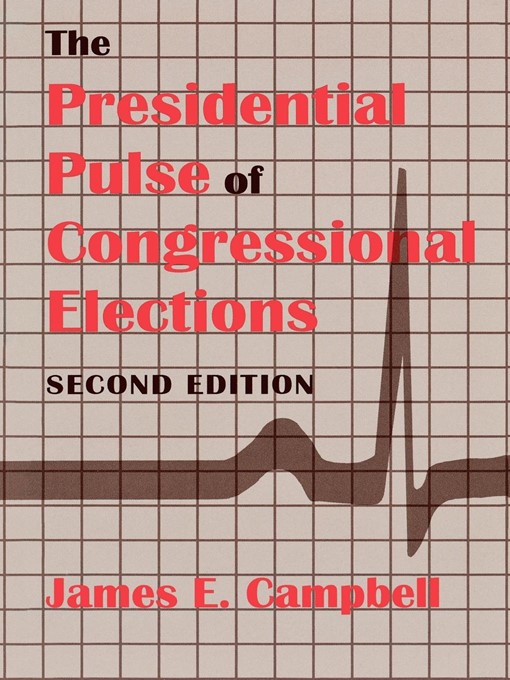An intriguing phenomenon in American electoral politics is the loss of seats by the president's party in midterm congressional elections. Between 1862 and 1990, the president's party lost seats in the House of Representatives in 32 of the 33 midterm elections. In his new study, James Campbell examines explanations for these midterm losses and explores how presidential elections influence congressional elections.
After reviewing the two major theories of midterm electoral change-the "surge and decline" theory and the theory of midterms as referenda on presidential performance Campbell draws upon each to propose and test a new theory. He asserts that in the years of presidential elections congressmen ride presidential coattails into office, while in midterm elections such candidates are stranded. An additional factor is the strength of the presidential vote, which influences the number of seats that are won, only to be lost later.
Finally, Campbell examines how the presidential pulse may affect electoral accountability, the relationship between Congress and the president, and the relative strength of Congress, the president, and political parties. He explores the implications of the presidential pulse for understanding electoral change, evaluating the American voter'scompetence, and assessing the importance of split-ticket voting.
Including both election returns and survey data, The Presidential Pulse of Congressional Elections offers a fresh perspective on congressional elections, voting behavior, Congress, and the presidency.

